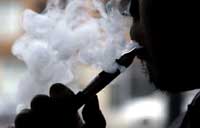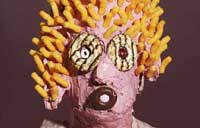Parents lead teen children on alcohol path
 |
|
[Photo/IC] |
Teenagers whose parents supply alcohol in early adolescence are three times as likely to be drinking full serves of alcohol at age 16 as children in families that do not supply alcohol, a major new study released in Australia on Monday has found.
In the largest study of its kind, researchers the National Drug and Alcohol Research Center at University of New South Wales, Australia followed nearly 2000 parent/child pairs over four years in a bid to provide guidance to parents on how best to moderate their child's drinking.
Chief investigator of the study, Professor Richard Mattick, said there was confusion among parents as to how best to moderate their child's drinking and thereby hopefully minimize risks such as injury, violence, poisoning, risky sexual practices and future alcohol problems.
At age 12 and 13 years, close to one in six children in the study reported being given alcohol by their parents. By 15 and 16 years of age more than a third of the sample was being supplied alcohol by their parents. Of these, 15 percent were drinking full serves compared with only 1.5 percent of the younger children.
"What we found was that early parental supply of alcohol through school years 7 to 9 was the single biggest predictor of drinking in year 10," Mattick said in a statement.
Mattick said the results showed that contrary to opinion among many parents, supplying children with alcohol did not moderate their drinking.
"Parents are the major supplier of alcohol to the under 18s," Mattick said.
"Many of these do so with the best of intentions -- to introduce alcohol in a safe, supervised environment with the aim of moderating a child's drinking."
There is also a great deal of interest in the so-called European model whereby parents allow children to sip alcohol from a relatively young age, he said.
"We know that adolescent drinking is associated with a wide range of later harms in early adulthood including injury, sexually- transmitted diseases, adult alcohol dependence, and changes in brain function have been reported by US researchers," Mattick said.
The results from the parental supply of alcohol study will be presented at the National Drug and Alcohol Research Center Annual Symposium in Sydney, on Monday.


















